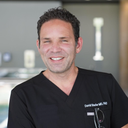Posted underRestylane q&a
Sep 23, 2011
Answers (10)
From board-certified doctors and trusted medical professionals
Dr. Harold J. Kaplan, MD

HM
Dr. Harold J. Kaplan, MD
Board Certified Facial Plastic Surgeon
Answer
Dr. Jed H. Horowitz, MD, FACS

JF
Dr. Jed H. Horowitz, MD, FACS
Board Certified Plastic Surgeon
Answer
Dr. James Bonaparte, MD, MSc, FRCSC

JF
Dr. James Bonaparte, MD, MSc, FRCSC
Facial Plastic Surgeon, Certified in Otolaryngology – Head and Neck Surgery
Answer
Dr. Corey S. Maas, MD

CM
Dr. Corey S. Maas, MD
Board Certified Facial Plastic Surgeon
Answer
Dr. Richard Ort, MD
RM
Dr. Richard Ort, MD
Dermatologic Surgeon, Board Certified in Dermatology
Answer
Dr. Grant Stevens, MD
GM
Dr. Grant Stevens, MD
Board Certified Plastic Surgeon
Answer
Dr. Sheri G. Feldman, MD
SM
Dr. Sheri G. Feldman, MD
Board Certified Dermatologist
Answer
Dr. Esta Kronberg, MD
EM
Dr. Esta Kronberg, MD
Dermatologic Surgeon, Board Certified in Dermatology
Answer
Dr. Alan M. Engler, MD, FACS (retired)
A(
Dr. Alan M. Engler, MD, FACS (retired)
Board Certified Plastic Surgeon
Answer
Dr. Mitchell Schwartz, MD - Account Suspended
MS
Dr. Mitchell Schwartz, MD - Account Suspended
Dermatologic Surgeon, Board Certified in Dermatology
Answer
More Restylane Questions
See all Restylane Q&A
WE SEND PRETTY
EMAILS
What’s trending? Who’s turning heads? Which TikTok myths need busting? We’ve got you. No fluff, no gatekeeping—just real talk. Get our free, unfiltered newsletter.





